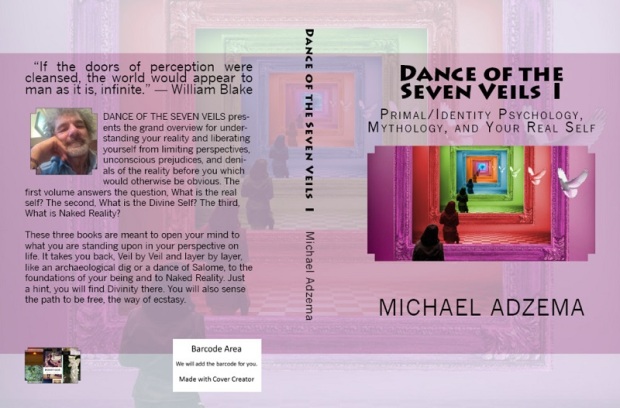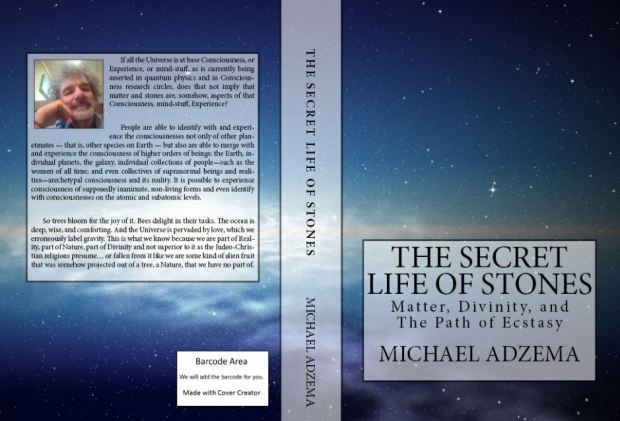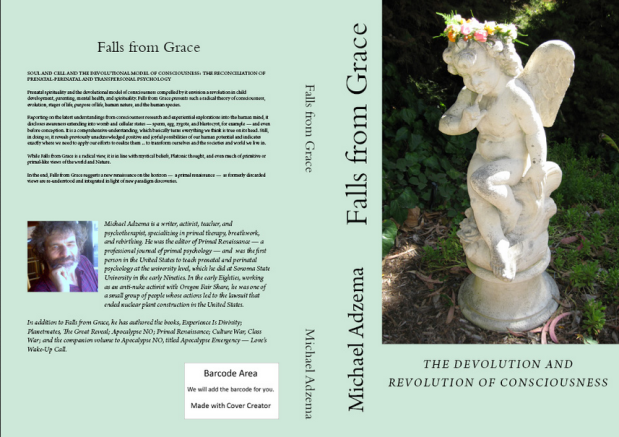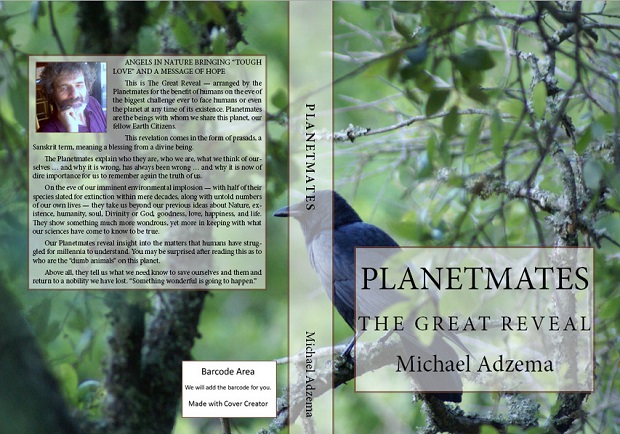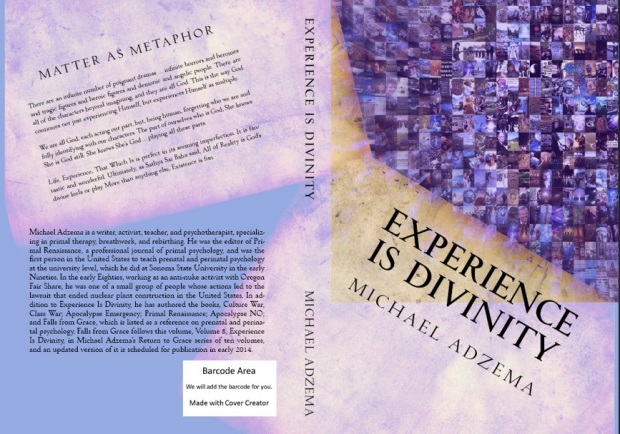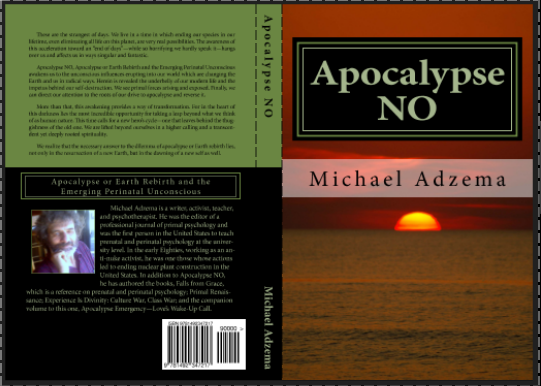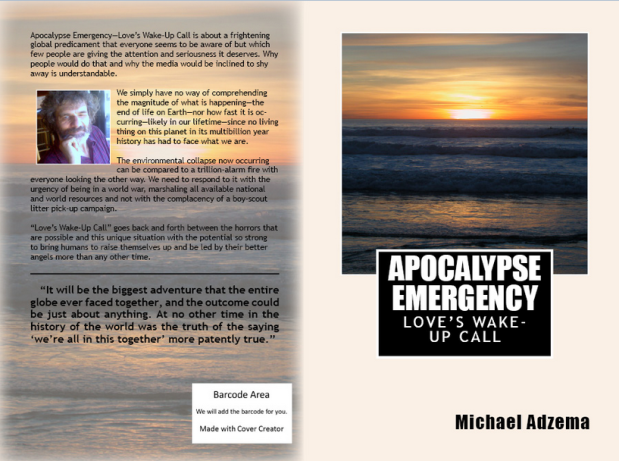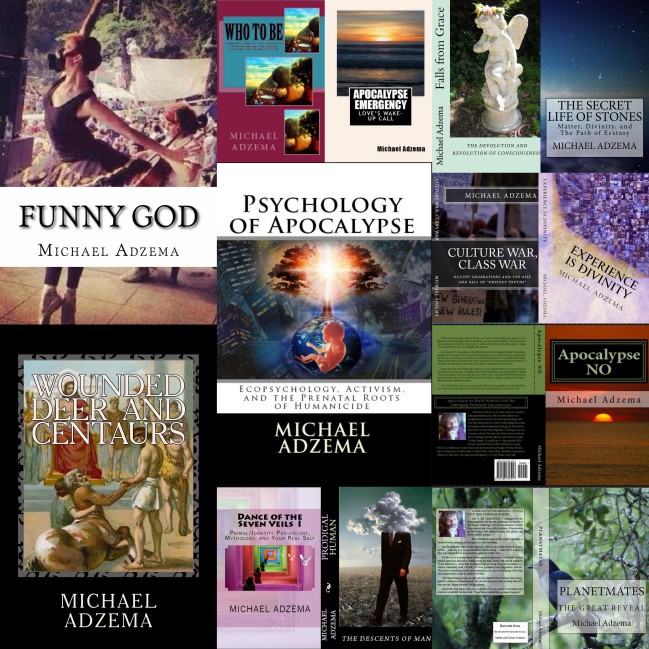“All planetmates come into the world with unique skills. Humans, as well. What you have so forgotten, astonishingly, is how life’s pleasure is involved, not just in sensory satisfactions, as in passing substances over the surface of your taste buds, but in using those skills latent in you. Athletes and artists know what we are talking about. But, look into Nature and you will see planetmates, from birth, reveling in the use of the skills and unique abilities—like the cat’s skills in going after prey—they are born with, which you say is attributable to “instinct”—as if it matters where it came from.
“For what is instinct, after all? You say it is a knowing that is programmed into us, passed down through our genes, pushing us to do things at certain times and guiding our actions in how to do it. Any way you look at it, you see us as little different from machines or computer programs going through their processes, or like the inanimate forces of Nature interacting according to laws of physics. This is part of the way you have removed spirit and consciousness from the rest of Nature, so you could raise your own up higher. For, amazingly, you say that you do not have such “instinct,” you say you have “free will”!
“Because it does not fit with your constant need to pump up your Ego, you have not considered how we feel or what our experience is in going about these “instinctual” “tasks.” And yet you could. Despite your vanities, you are part of Nature, too. You are not much different from us, so you have overlap with the Reality we experience and ingress to the way we experience it.

“Assume that you are not so different from us, for a second, and see if you can understand what “instinct” really is. Okay, you eat, for example. But why? Well, you know you have certain urges within your experience, which become more noticeable and then even painful the longer you fail to respond to them. They are called hunger, or you might say you have a craving. You do not “choose” these events or experiences. Are they not something like instinct?
“Not quite getting it, I see. Okay, consider also what you do, then. You bring that urge or hunger to an end by satisfying it. You do this by eating something. And do you need to tell yourself how to eat? You have mouths, teeth, throats, and stomachs. Does your free will come up with the idea of how to use them, or are you “instinctual,” too? Was swallowing some invention one of you had at one point, which was then taught to generation after generation?
“Still is not completely clear? Alright, then think what is your experience when you eat. When you satisfy that urge, called hunger, you experience what you call pleasure. Put it all together and what do you have? You have an experience which directs you to do something, at particular times, and guides you in the exact ways of doing it, which you do until you achieve pleasure, or at least satisfaction. Sounds like “instinct,” does it not?
“But you say we have more specific directions on things to do and when to do them. You say one of our bird planetmates knows “instinctually” how to build a nest, whereas you have to learn how to fashion your house. But consider that your desire to build a shelter does not have to be learned. You would say that it comes naturally out of the experience of existing in the open, encountering inclement weather, and wanting to be comfortable (to not be in pain because of it), and possibly as being proactive against the threat of predators. Have you not considered that our actions might also come from exactly the same kind of experiential pushes? Just because you, standing outside of us, do not see this does not mean it is not going on for us.
“But more. You may be someone who is naturally strong. Where does the desire to use that strength come from? You may be someone with a sweet voice. Where does the urge to sing come from? You may be someone with a knack for understanding the workings of things. Where does the “instinct” to delve deeply into matters and “research” them come from? Where does that “curiosity” come from? Do you see that many of the things you do in life—from being able to eat and breathe to individual skills like singing—arise out the fact that you are born with the capacity or ability to do them? Do you see that the potential for something gives rise to its actualization? And that experientially this comes across, just like hunger and eating, as an urge (seemingly coming out of nowhere), containing within it exact conceptualizations or imaginings on the possible fruition or manifestation coming from that urge, leading to what you call a pleasure when you are following through on that forethinking or imagining and especially upon its completion? But, if we viewed things the way you do, why would not we, looking at you doing this, think you are acting “instinctually”?
“So you and we are the same experientially. We do our lives carrying out actions that arise out of messages from our bodies (and from where they come, neither you nor we exactly know), which provide the satisfaction and pleasure of life in their manifestation.
“How specific those messages are is not a huge dividing line between us, as the fact that we often are much more precise in the actions we carry out is easily explained by the fact that you are more split off from such sources of information. You also have many things you do out of unconscious knowledge, coming to you as feelings in your bodies, which you do not see and do not want to notice … preferring the self-congratulation of crowning yourselves with “free will,” instead. And there would be much more “instinctual” knowledge available to you—and is available to you—were you, for reasons of your birth and infancy and the way they have caused you to run away from the feelings in your bodies, not split off from them. Indeed, to the extent that you have not run away from such pain, or to the degree that one has turned and faced and integrated that pain and reconnected with one’s body, you do feel and receive such specific “instinctual” instruction….”
Pt 2 of 25rd prasad — Family Fortress.
— excerpted from *Planetmates: The Great Reveal* … now available in print and e-book at Amazon.
ABOUT THE AUTHOR, Michael Adzema. Video below … interviewed by Michael Harrell
.
https://www.youtube-nocookie.com/embed/2mm9OBbYjRE
.
.
— Related: See also other published versions of these ideas….
.
*Dance of the Seven Veils I* (2017).
At Amazon at
*The Secret Life of Stones: Matter, Divinity, and the Path of Ecstasy* (2016).
*Falls from Grace: The Devolution and Revolution of Consciousness* (2014).
*Apocalypse NO: Apocalypse or Earth Rebirth and the Emerging Perinatal Unconscious* (2013).
,
*Culture War, Class War: Occupy Generations and the Rise and Fall of “Obvious Truths”* (2013).
.
To purchase any of Michael Adzema’s books, available in print and e-book formats, go to Michael Adzema’s books at Amazon.
Those who want signed copies of any of my books, email me directly … sillymickel@gmail.com … Discount for blog subscribers.
Invite you to join me on Twitter: http://twitter.com/sillymickel
friend me on Facebook: https://www.facebook.com/sillymickel





